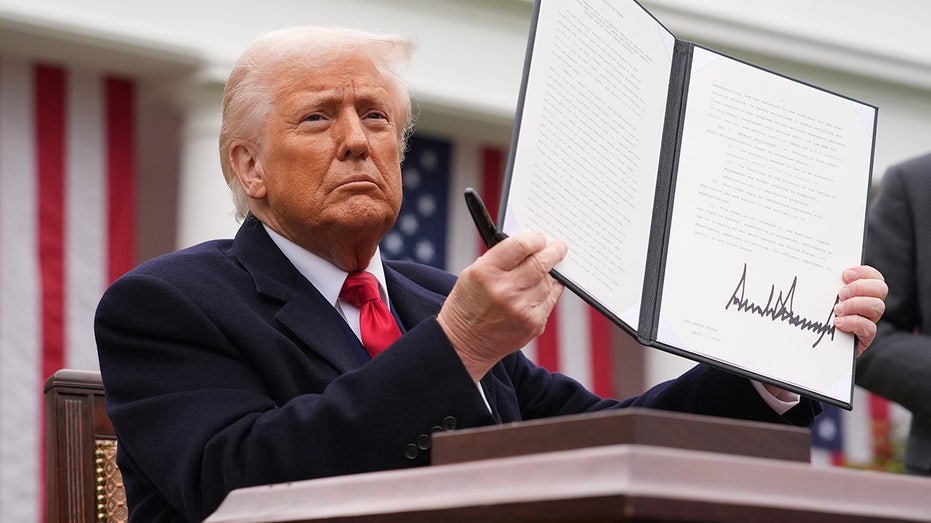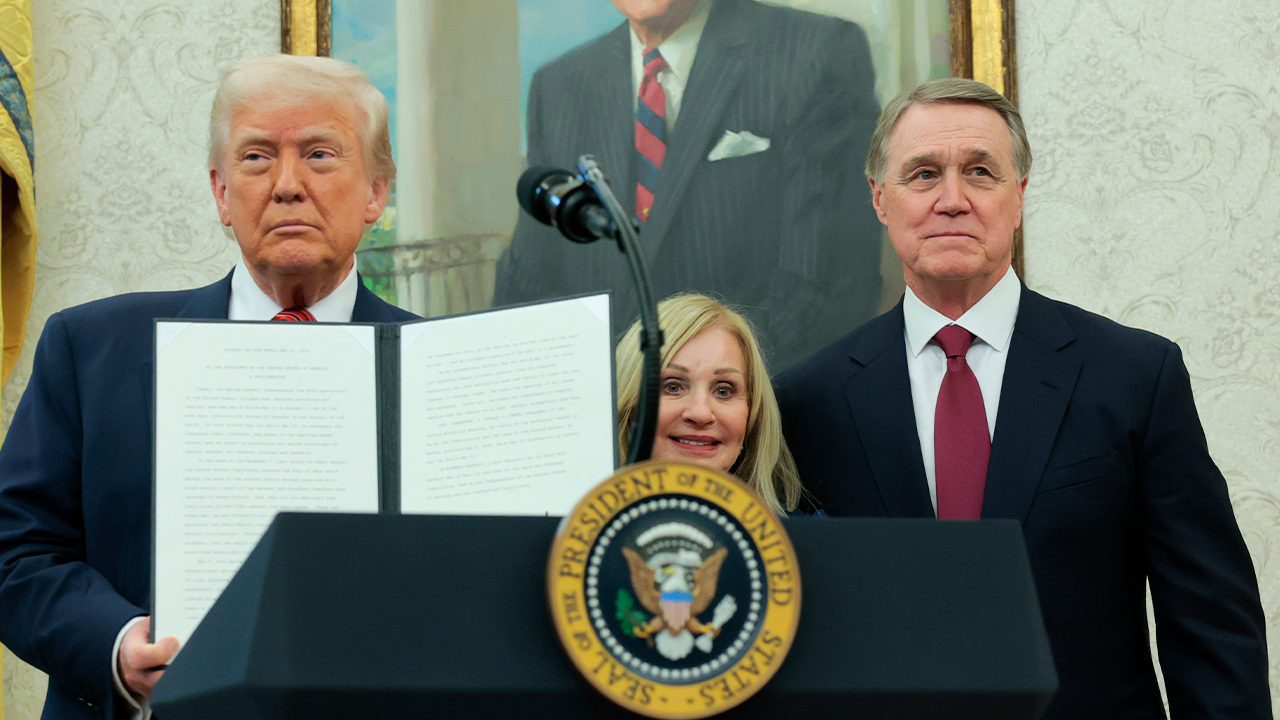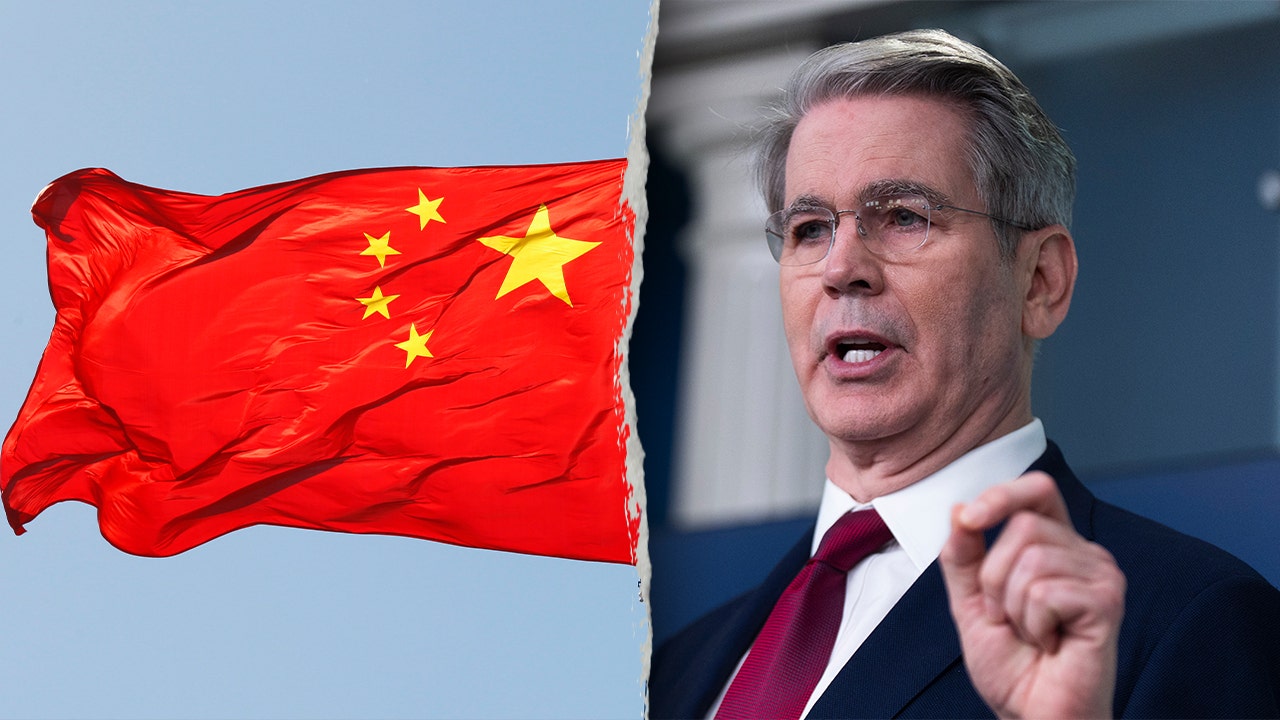The U.S. has not yet kicked off trade negotiations with China, as both Washington, D.C., and Beijing have slapped steep tariffs against each other’s imports, according to Treasury Secretary Scott Bessent.
“China, we have not engaged in negotiations with as of yet,” Bessent told members of the House Appropriations Committee Tuesday.
The Trump administration unveiled sweeping tariffs across a host of countries on April 2, after historically lambasting other countries’ trade practices and accusing them of engaging in unfair trade practices against the U.S.
The administration later walked back its initial proposal and announced April 9 it would immediately hike tariffs on Chinese goods to 145%, but scale back reciprocal tariffs on other countries for 90 days to a baseline of 10%. In response, China proceeded to boost its tariffs on U.S. goods to 125%.
President Donald Trump told reporters Tuesday that China was interested in meeting with the U.S.
“They want to meet, and they’re doing no business right now … by not trading, we’re losing nothing,” Trump said at the White House Tuesday after Bessent’s appearance before lawmakers. “So we’re saving $1 trillion.”
HERE’S A CLOSER LOOK AT TRUMP’S TARIFF PLAN: WHAT TO KNOW ABOUT THE NEW DUTIES
Meanwhile, Trump has signaled interest in loosening some of the tariffs slapped on Chinese imports but said he would not be the first to bend and compromise by initiating a decrease in tariffs.
“At some point, I’m going to lower them because otherwise you could never do business with them,” Trump said in an interview with NBC’s “Meet the Press with Kristen Welker” that aired Sunday. “They want to do business very much … their economy is collapsing.”
Trump also told reporters on Air Force One Sunday that he is seeking a “fair” trade deal with China and added that the U.S. and China were in discussions about a variety of issues.
Chinese officials have said the country is considering holding talks with the U.S. and acknowledged statements from U.S. officials indicating an interest in discussions, but that the U.S. must eradicate the tariffs first.
“The tariff and trade wars were unilaterally initiated by the U.S., if the U.S. side wants to talk, it should show its sincerity, and be ready to take action on issues such as correcting wrong practices and canceling the unilateral imposition of tariffs,” China’s Commerce Ministry said in a statement Friday.
Trump has backed tariffs for decades. Additionally, the White House has called for tariffs to address the nation’s 2024 record $1.2 trillion trade deficit and asserted that the tariffs will revive U.S. manufacturing jobs.
HERE’S A CLOSER LOOK AT TRUMP’S TARIFF PLAN: WHAT TO KNOW ABOUT THE NEW DUTIES

Bessent warned in April that the tariffs could cost China up to 10 million jobs and said that the ball is in Beijing’s court to remove the existing tariffs on U.S. imports.
“I think that over time we will see that the Chinese tariffs are unsustainable for China,” Bessent told reporters at the White House on April 29. “I’ve seen some very large numbers over the past few days that show if these numbers stay on, Chinese could lose 10 million jobs very quickly. And even if there is a drop in the tariffs that they could lose 5 million jobs.”
“So remember that we are the deficit country,” Bessent said. “They sell almost five times more goods to us than we sell to them. So the onus will be on them to take off these tariffs. They’re unsustainable for them.”
Bessent also told lawmakers Tuesday that the U.S. has been engaged in discussions with various countries and signaled that major trade deals could be announced “as early as this week.”
The Associated Press contributed to this report.
Read the full article here












